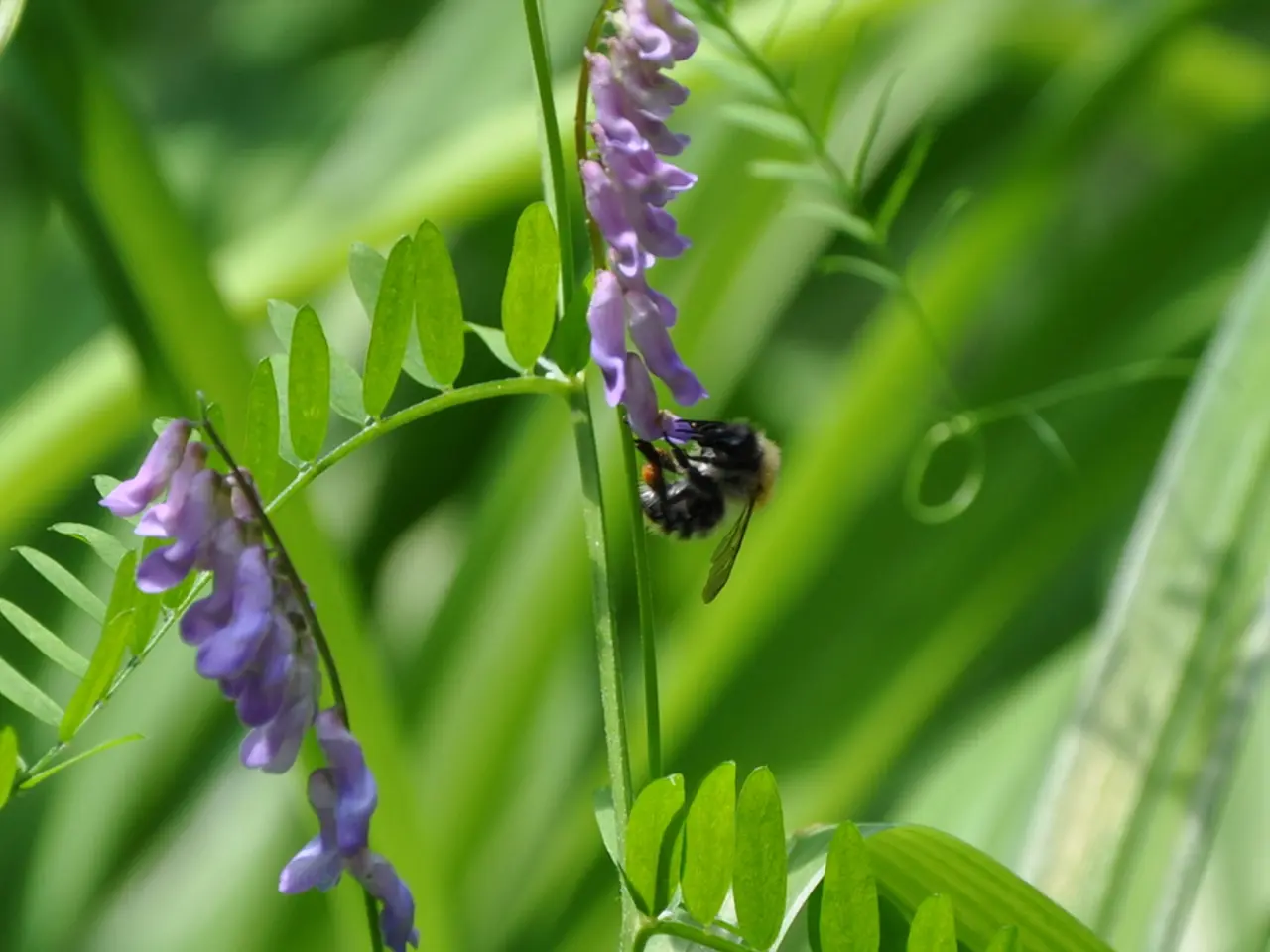Utilizing Neem Oil in Gardening: 3 Beneficial Applications as a Garden Ally, Plant Savior, and Pest Control Agent - The Magic of Neem Makes the Gardening Dream a Reality!
In the world of organic gardening, one natural solution has been gaining popularity for its versatility and effectiveness: Neem Oil. This organic agent, derived from the neem tree (Azadirachta indica), offers a wide range of benefits for trees, houseplants, and lawns.
Neem Oil serves as an insect repellent, deterring certain pests from treated leaves. It is particularly effective against a variety of pests such as aphids, beetles, whiteflies, fruitflies, leafminers, cabbage loopers, mealybugs, thrips, and spider mites. What's more, it can also act as a fungicide for several fungal diseases, including powdery mildew, fire blight, verticillium wilt, black spot, leaf spot, anthracnose, and rust.
One common way to use Neem Oil is through a foliar spray. By diluting Neem Oil solution with water and a mild soap as an emulsifier, gardeners can spray it liberally on all parts of plants, especially the undersides of leaves where pests like aphids, spider mites, whiteflies, and mealybugs hide. This suffocates soft-bodied insects and disrupts pest feeding and reproduction. For optimal effectiveness, it is recommended to apply the spray either first thing in the morning or later in the evening.
Neem Oil also works as a barrier that prevents the spread of certain fungal infections. When used as a fungicide, it inhibits fungal spore germination and spread.
For soil-dwelling pests like fungus gnat larvae, root mealybugs, and harmful nematodes, a diluted Neem Oil solution can be applied to the soil. This allows for systemic absorption through roots, offering internal protection against sucking insects.
In an integrated pest management (IPM) strategy, Neem Oil can be rotated weekly with other organic pesticides such as insecticidal soap or horticultural oil to improve control and reduce resistance.
However, it's important to remember that Neem Oil should not be used on very young plants or plants that are otherwise relatively unhealthy. Also, Neem Oil solutions should not be applied if temperatures rise above 90 degrees Fahrenheit (32°C) to prevent foliar burn.
By following these guidelines, gardeners can safely use Neem Oil solutions around the garden and deploy them on the leaves of many crops. Common ready-made Neem Oil sprays, like Bonide's Captain Jack's Neem Oil Organic Spray or Captain Jack's Neem Max Ready To Use Spray from Walmart, work effectively as a fungicide, pesticide, and miticide.
With its natural organic pest control properties, Neem Oil is a valuable tool for organic gardeners seeking to manage pests and fungal diseases while minimizing synthetic chemical use.
- In addition to its use in organic gardening, Neem Oil can also be a valuable asset in the realm of cooking and food-and-drink. Its versatile properties make it a popular ingredient in various recipes as an organic pesticide, particularly in homemade pest control solutions.
- Embracing a sustainable lifestyle, some fashion-and-beauty enthusiasts have started using Neem Oil as a natural alternative in their personal care routine. Due to its effectiveness as a moisturizer and insect repellent, it has gained popularity as an ingredient in skincare and haircare products.
- For those who enjoy the art of cooking and the joy of preparing meals, recreating authentic home-and-garden recipes using Neem Oil can add a unique, organic touch. Whether as a pest repellent for herbs or vegetables, or as a natural seasoning for certain dishes, Neem Oil offers gardeners and foodies a chance to incorporate its eco-friendly benefits into their daily lives.




